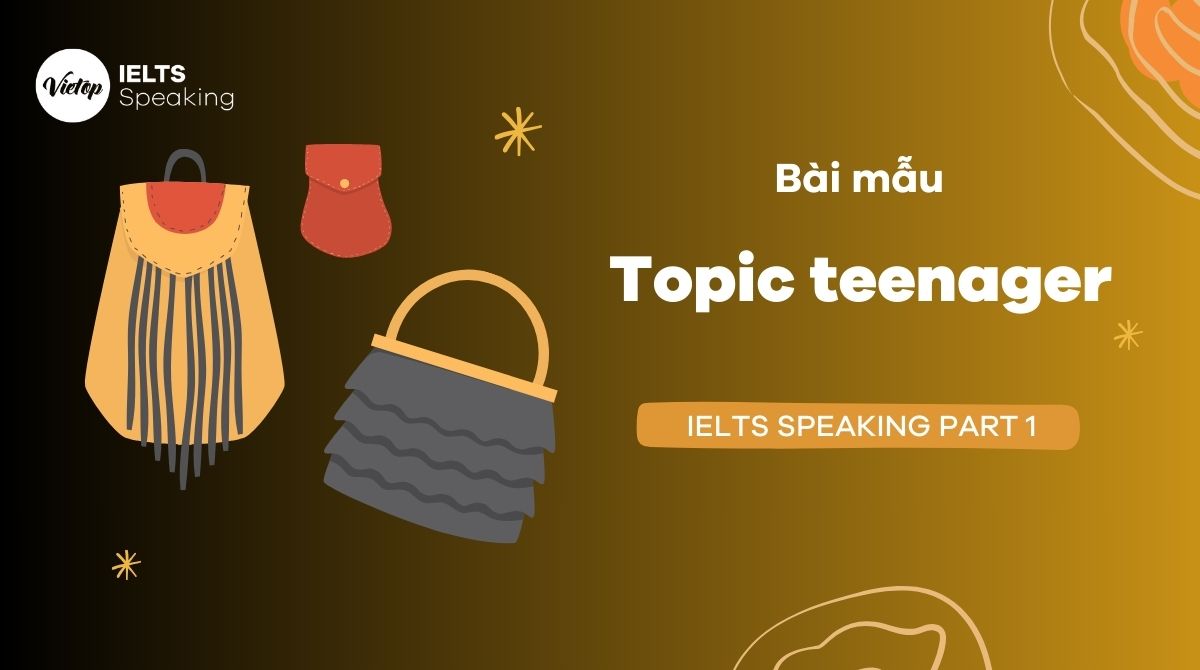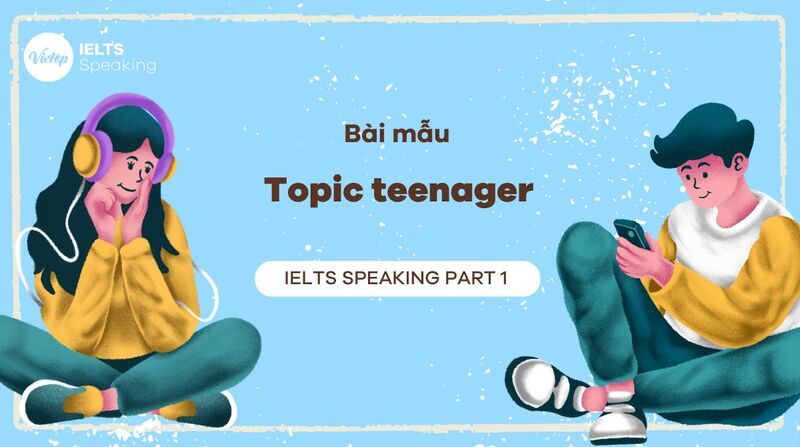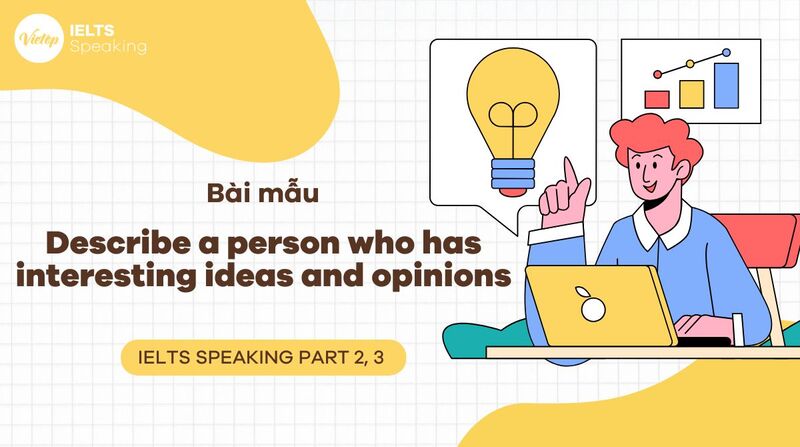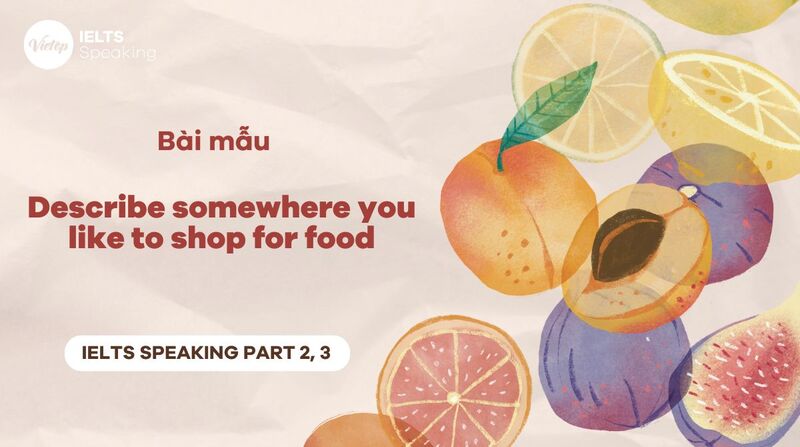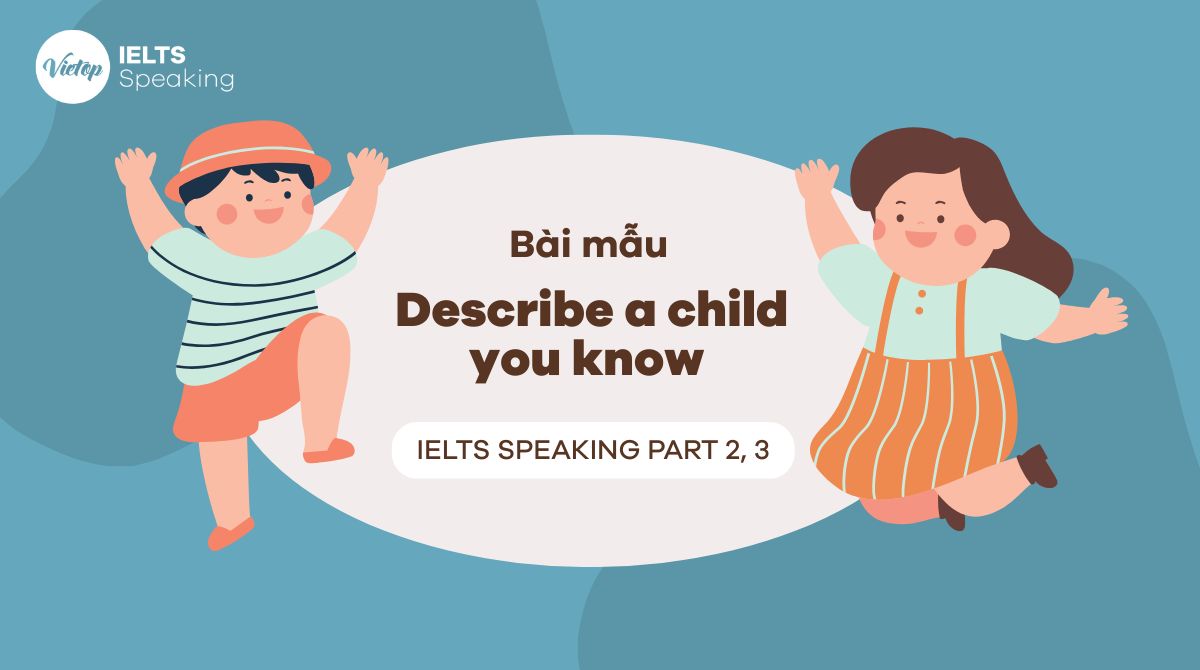Trong bài viết sau là một số câu hỏi và sample answers IELTS Speaking part 1, 2, 3 cho chủ đề Smile (nụ cười) khá mới trong bài thi IELTS Speaking gần đây, các bạn tham khảo bài mẫu topic Smile này trong phần IELTS Speaking part 1, 2, 3 nhé.
1. Từ vựng topic Smile
- Unsociable person: người không thân thiện
- Crack a smile: cười nhẹ nhàng
- Fake smile = social smile: nụ cười không thật
- Contagious: có sức lan tỏa
- Approachable: dễ tiếp cận
- Immune system: hệ miễn dịch
- Genuine smile: nụ cười thật
- Be in a good mood: vui vẻ
- Chuckle: cười thầm
- Optimistic: tích cực
- Common courtesy: phép lịch sự thông thường
- Smile from ear to ear (idiom) trông có vẻ rất vui
- Photogenic: ăn ảnh
2. Một số câu hỏi thuộc topic Smile – IELTS Speaking part 1
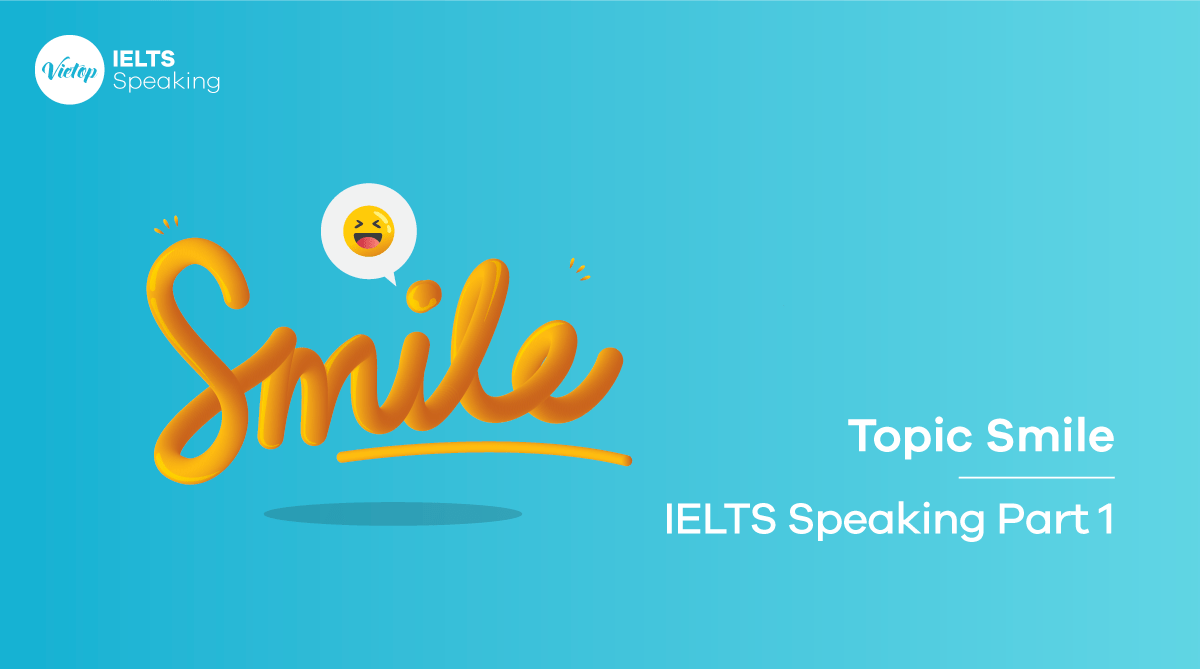
Mời bạn cùng nghe Podcast bài mẫu Part 1 của Vietop English nhé:
2.1. Do you often smile?
Of course yes. I usually smile because I want to be more friendly and approachable to others, otherwise I could be seen as an unsociable person. On top of that, a smile is a common courtesy in the workplace which often brings a positive vibe to the atmosphere.
2.2. Do you smile when people take pictures of you?
Definitely yes. I usually smile from ear to ear when I’m in the picture simply because I believe our faces would be more photogenic when we smile. However, I must admit that sometimes I just fake a smile because I’m not in a good mood.
Xem thêm: Khóa học IELTS 1 kèm 1 – Chỉ 1 thầy và 1 trò, cam kết đầu ra
2.3. When do people give fake smiles?
Well, I guess people can make a social smile when they are not in a good mood but try to smile. I can’t deny the fact that we cannot have genuine smiles everytime.
2.4. Do you like to smile?
Yes, I do enjoy smiling. I believe that a smile can brighten not only my day but also the day of those around me. It’s a simple yet powerful way to convey positivity and approachability. Smiling often helps create a more friendly and welcoming atmosphere in various situations, and it’s something I find quite natural and enjoyable to do.
2.5. When do people smile to others?
I believe individuals tend to smile when they feel excited and delighted to meet someone. For instance, if you reunite with a close friend you haven’t seen in a long time, it’s quite natural to break into a smile. People also commonly smile as a form of greeting, regardless of their level of closeness with the other person. In my culture, smiling is considered a common and courteous way to interact with others.
2.6. When was the last time you saw a lot of people smiling
A few months ago, I hosted a birthday celebration at my home. I extended invitations to both my close relatives and my dearest friends. The gathering was not only filled with smiles but also hearty laughter. It was heartwarming to witness the people who hold a special place in my heart, sharing their best smiles during the festivities of my birthday.
2.7. Do you like to smile in photos
Except for official government-issued IDs, I usually opt to wear a smile in photos. From a scientific standpoint, I’ve heard that smiling can trigger a mood enhancement. Additionally, I aim to capture a beautiful and positive image of myself, as we all know that a smile is more appealing to look at than a frown. While achieving the perfect picture is challenging, a friendly and smiling face can certainly make it more pleasant and memorable.
2.8. Can you sense if someone’s smile is fake?
To be honest, no, I don’t typically notice when someone is smiling to conceal their true emotions. I’m not particularly sensitive in that regard. However, when someone sneers, I can readily discern the unkind nature of that expression.
Bạn có biết rằng một nụ cười có thể thay đổi cả cuộc trò chuyện không? Trong bài thi IELTS Speaking, việc sử dụng từ vựng phong phú và diễn đạt ý tưởng một cách tự nhiên về chủ đề nụ cười sẽ giúp bạn gây ấn tượng với giám khảo. Khóa học IELTS 7.0 của Vietop English sẽ giúp bạn khám phá những góc nhìn đa dạng về nụ cười, từ đó nâng cao điểm số IELTS của mình.
Xem thêm:
- Describe a skill that takes a long time to learn
- Talk about your favorite sport
- Talk about your family
3. IELTS Speaking part 2: Describe an occasion when many people were smiling
You should say: Describe an occasion when many people were smiling
- When it happened
- Who you were with
- What happened
- and explain why most people were smiling
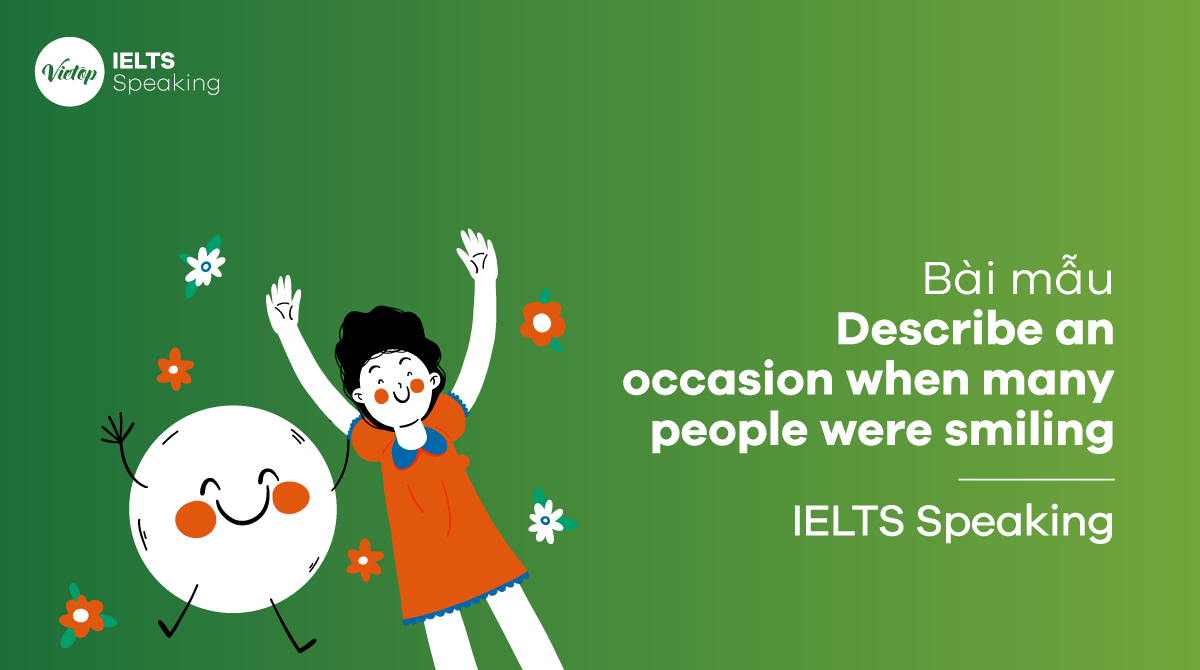
Sample:
I’m going to talk about my nephew’s “thôi nôi”, which is a traditional ritual in my culture. The word “thôi nôi” literally means to be weaned off the cradle. Parents often perform this when their child reaches one year of age in the Lunar calendar. This is an occasion that is considered fun and everyone involved usually laughs and smiles a lot.
Last week, my nephew turned one. My brother and sister-in-law, his parents, threw a big party and they invited close friends and relatives to join. But the activity that most people want to see is what I call “the career prediction ritual”. In this ritual, my nephew was presented with various daily life objects including a book, a toy car, a calculator, a pair of scissors, etc. It is said whichever item is chosen by the baby is a prediction of their future occupation.
As he was looking at the selection, everyone else was laughing and cheering him on. After a minute of hesitation, he eventually went for the calculator. So the interpretation is that his future job might relate to numbers. For example, finance or accounting. His parents seemed to be very happy with that. They kept kissing him and smiling at him.
Personally, I don’t think the prediction is accurate. What is significant about this event is the story it creates and the happiness it brings. You know, I’m an adult and sometimes my parents still talk about how I chose a pair of scissors and never worked a day as a tailor. They often smile when they mention it and I believe my nephew and his parents will do the same in the future.
Vocab:
- Ritual (n): nghi lễ
- To be weaned off something (collocation): cai, thôi không làm gì nữa (khi đến tuổi)
- Cradle (n): nôi
- The Lunar calendar : âm lịch
- To be presented with something (collocation): được cho xem
- To go for (collocation): chọn
- Item (n): vật dụng
- Accurate (adj): chính xác
- Tailor (n): nhà may
Audio:
Xem thêm:
4. IELTS Speaking part 3 topic Smiling
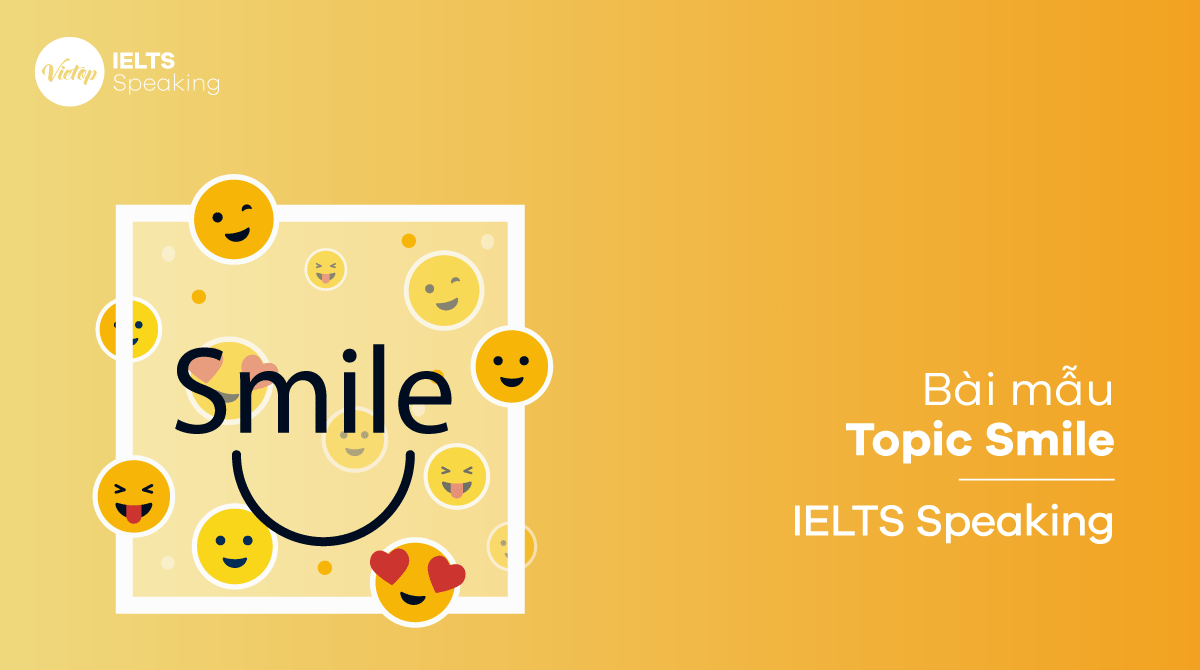
4.1. Do you think people who like to smile are more friendly?
Yes, provided that they are sincere. I try to smile in tense or embarrassing situations to let other people know that I’m friendly so there’s nothing to worry about. The opposite is also true, I find strangers friendlier and more trustable if they smile at me. I think we should encourage people to smile more often.
- Provided that (collocation): miễn là
- Trustable (adj): đáng tin
4.2. Why do most people smile in photographs?
Interesting question, I’ve never thought about that before. To me, the reason why I smile in pictures is because I feel like pictures will last forever or at least for a very long time. When I look back to my past, I’d rather see moments in which I’m happy. Smiling is indeed a good way to remind my future self of these happy moments.
- Indeed (adv): chắc hẳn
4.3. Do women smile more than men? Why?
I don’t think so. In my experience, the tendency to smile of people around me isn’t determined by genders but rather their personalities. Friendly and carefree people tend to smile more often, while serious people tend to be quiet regardless of their genders. Another important factor is stress. People who are under great pressure would find it hard to smile, whereas people who are in a comfortable position can smile more easily.
- Tendency (n): xu hướng
- Carefree (adj): vô tư
- Regardless of something (collocation): không màng đến, bất chấp
Audio:
Hy vọng với những chia sẻ trên bạn đã chuẩn bị cho một một lượng từ vựng kha khá và cách trả lời như thế nào khi gặp của topic Smile trong bài thi IELTS Speaking part 1, IELTS Speaking part 2, IELTS Speaking part 3. Chúc các bạn học IELTS Speaking tốt nhé!
Nếu bạn có thắc mắc gì về bài viết hãy để lại bình luận bên dưới để được giải đáp nhé!

